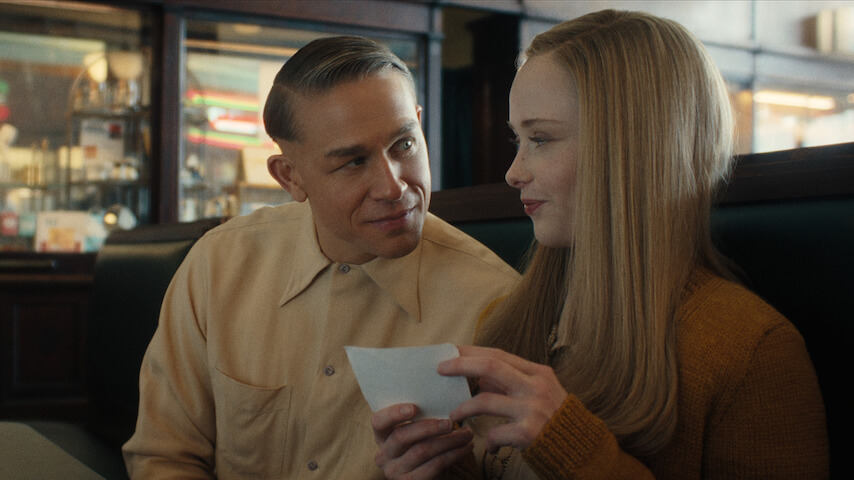Monster: The Ed Gein Story is guilty of the very sensationalism it critiques
Ryan Murphy and Ian Brennan paint a slickly meta portrait of the serial killer and pop-culture fascination.
Photo: Netflix
Netflix’s Monster: The Ed Gein Story has no shortage of ambition. After all, as its poster stresses, its titular figure is responsible for three of the most influential films of all time: “Before Psycho,” its tagline reads, “before The Texas Chain Saw Massacre, before The Silence Of The Lambs…there was Ed.” It makes sense that the anthology series that’s already offered viewers the tales of Jeffrey Dahmer and Lyle and Eric Menendez would turn its sights to this most infamous of serial killers. He’s one who, as those films loosely inspired by him attest, has long captivated the curiosity of directors and audiences alike. And it’s a testament to the wild ambitions of this Netflix series that Monster: The Ed Gein Story doesn’t want to merely tell Gein’s story but to mount an argument about how his life has refracted and reflected American culture’s ever-changing ideas about horror—both in real life and onscreen.
Such a goal is an admirable one. There is plenty to be dissected about why Gein’s crimes (particularly his penchant for exhuming bodies and creating keepsakes from skin and bone) so fascinate and what, in turn, we could learn about the very arc of consuming horror. How do images of desecrated bodies (like the concentration-camp photos that first titillated Gein in his youth) or scenes of violent mutilation (such as those featured in Texas Chain Saw) contribute to a visual economy that simultaneously nurtures and glamorizes serial killers like himself? What’s the ethical imperative when aestheticizing this kind of violence, especially when it dovetails with issues of mental health and questions around gender and identification? How, in essence, does a show like Monster give itself license to offer a portrait of Gein that doesn’t merely mine the sensationalist thirst for details of his life but creates room for complicating our complicity in wishing to have a front row seat to his gut-wrenching exploits?
A better version of Monster: The Ed Gein Story would not just ask these questions. It would actually tackle them with care and curiosity. Instead, those ambitious ideas remain thin premises onto which creators Ryan Murphy and Ian Brennan (who wrote every episode and directed two of them) tacks on Gein’s narrative haphazardly, making this season of Monster feel more intentionally fractured than its previous iterations. Sure, we may begin with a young Ed (Charlie Hunnam) stumbling through flailing attempts to appease his devout, domineering mother (played by Laurie Metcalf) and end with a graying Ed in a mental institution calmly reflecting back on a life bruised by crime and trauma. In between, though, Brennan remixes Gein’s life, shuttling back and forth as needed, threading episodes from his past with scenes from those horror films he inspired, fictionalized moments from a Holocaust-themed comic book, and even imagined conversations with the likes of Christine Jorgensen.
The through-line of the season is a simple one: Ed Gein is a foundational serial-killer figure. It wasn’t just that he inspired books and films. It was that he also inspired other murders. In presenting an origin story of sorts (while critiquing that very impulse), Monster insists that Ed was unique as well as a symptom for a world torn asunder, explaining why those images from the Holocaust are key to his development. If humanity could be responsible for such horrors—and would allow them to be re-presented (in photos, say), then what kind of monsters might it let loose in its wake?
 Keep scrolling for more great stories.
Keep scrolling for more great stories.
